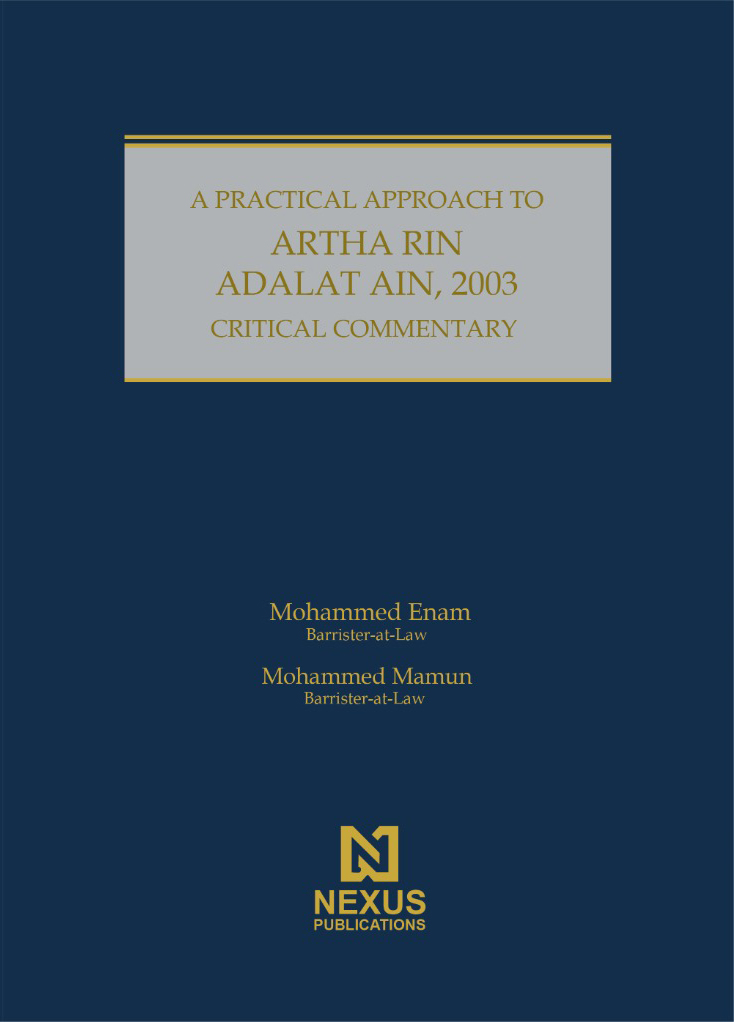Editor’s note Artha Rin Adalat Ain, 2003 (‘the Ain’) is the principal legislation governing the recovery of defaulted loans. Despite more than three decades since its inception, there remains no comprehensive book, offering a critical and in-depth analysis of the Ain and the judgments pronounced under it. Realising this gap, Barrister Mohammed Enam and Barrister Mohammed Mamun undertook the painstaking and humongous task of analysing all reported as well as important unreported judgments of the Supreme Court of Bangladesh. They have made highly commendable and rigourous efforts to examine, analyse and explain the provisions of the Ain and judicial decisions in a comprehensive, lucid and practitioner-friendly manner. The uniqueness of this book lies atleast in three features. First, it provides a clear and systematic explanation of each section of the Ain, making complex provisions accessible to both practitioners and judges. Second, it brings together and critically examines judgments of both Divisions of the Supreme Court, showing how the law has been interpreted and developed over time. It also illustrates how different Benches of the High Court Division and the Appellate Division have, on occasion, reached divergent conclusions based on their own reasoning. Third, it offers the authors’ own views and critiques, pointing out the gaps and ambiguities in the Ain and suggesting areas for reform. The authors also critically assess important and contentious judgments, providing their considered opinions and reasoned critiques where necessary. The authors of this book are close friends of mine. I am deeply grateful to have been entrusted with the responsibility of serving as the editor and it has been both an honour and privilege. It has given me the opportunity to engage closely with a text that, for the first time, brings together a comprehensive and systematic study of the Ain vis-à-vis judicial decisions. I sincerely hope that this book will serve as a regular reference in courts for years to come. It combines clarity and depth as well as practical guidance and critical analysis—attributes that make it a pioneering contribution to financial law related literature in Bangladesh. Sabbir Azam Barrister-at-Law (Lincoln’s Inn) Advocate, Supreme Court of Bangladesh






